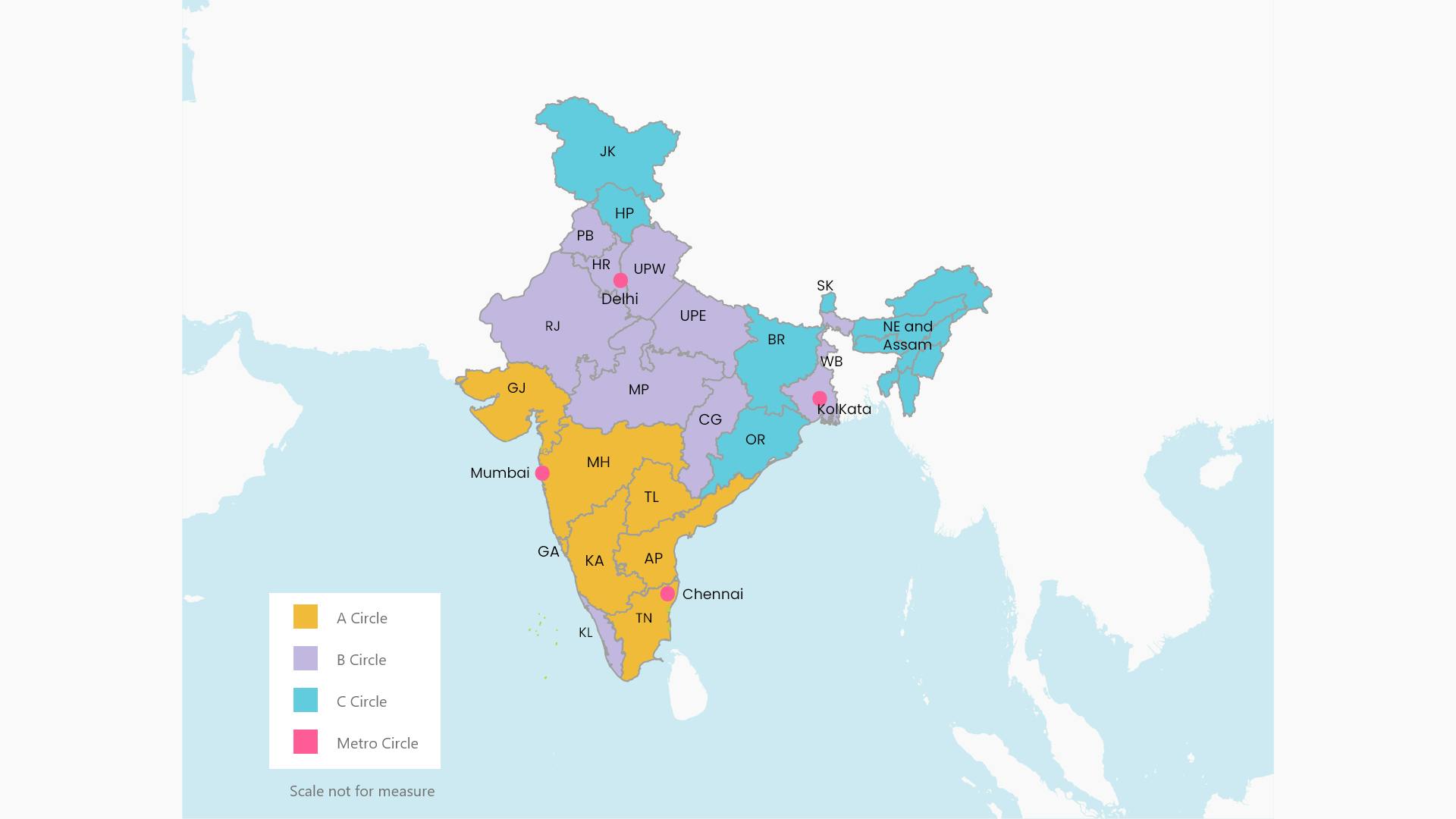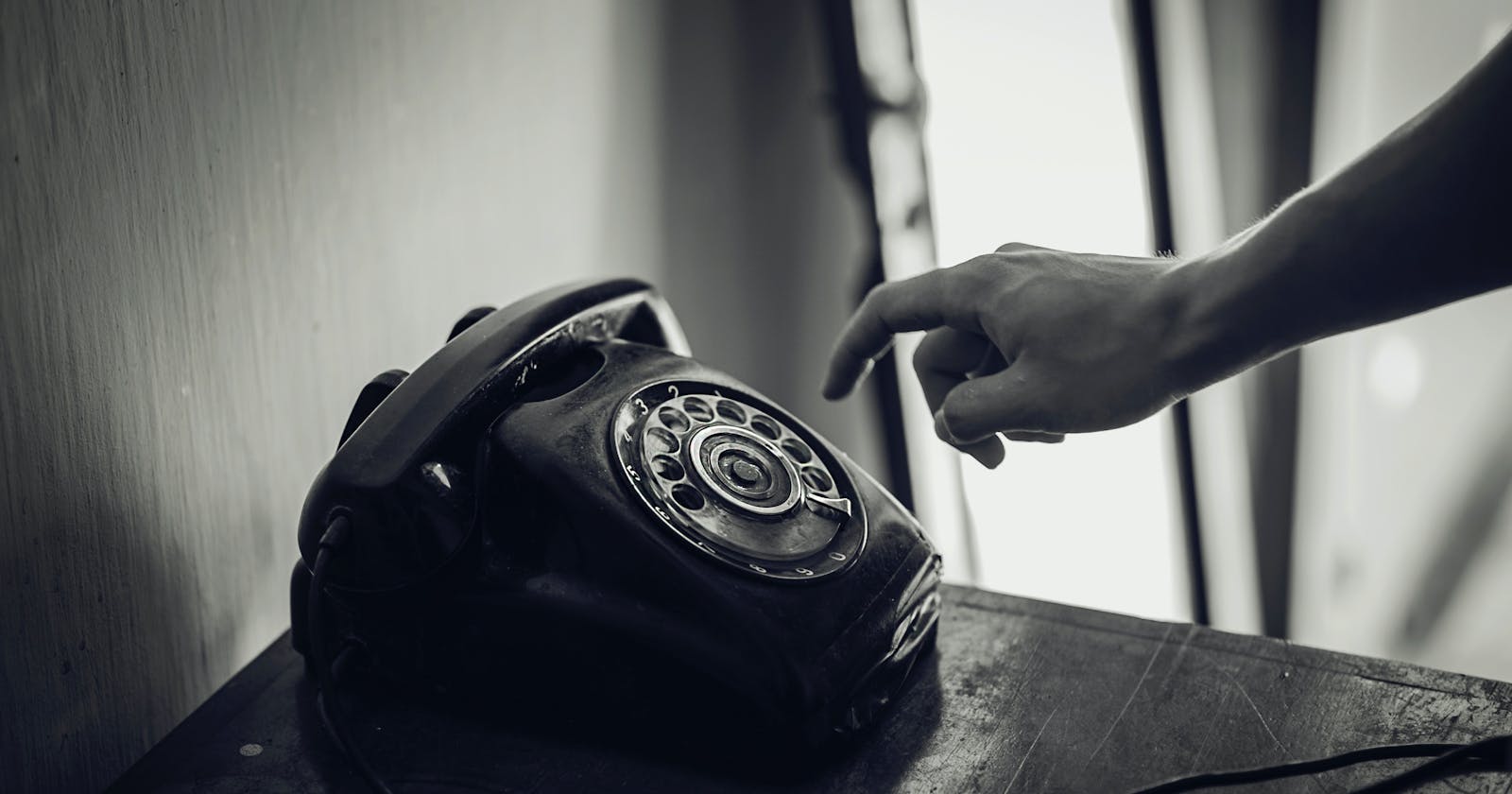Have you ever wondered what your phone number means and why you always can't seem to get a VIP or lucky phone number of your own choice?
This article is inspired from my recent video which you can watch below:
Now, what I'm going to mention right here is in the context of an Indian phone number. So, the information presented is valid for Indian territory.
The logistics of the phone numbers are a bit complicated and unusual in common sense. India is a big country. Precisely the 7th largest on the planet. To manage such a large portion of the area, we need to split the land area into various administrative levels like national, state, district, cities, rural areas, etc.
The same goes for the Telecom industry. The total landmass is split into 4 areas- A, B, C and Metro. In total, India has 23 telecom circles.
 Now, you might also wonder that why we Indians have only 10 digits phone numbers? Well, that's something a creation out of national numbering plan which was introduced in 2003 by Government of India which allows all of the telecom operators to allocate 10 Billion phone number if you do the permutations and combination and that a lot considering that the world population is 7.5 Billion and we Indian have a total population of 1.3+ Billion and half of them uses phone every day.
and if you compare it with china they have 11 digits numbers which give them a 100 Billion numbers.
Now, you might also wonder that why we Indians have only 10 digits phone numbers? Well, that's something a creation out of national numbering plan which was introduced in 2003 by Government of India which allows all of the telecom operators to allocate 10 Billion phone number if you do the permutations and combination and that a lot considering that the world population is 7.5 Billion and we Indian have a total population of 1.3+ Billion and half of them uses phone every day.
and if you compare it with china they have 11 digits numbers which give them a 100 Billion numbers.
So who decides which telco gets which number? India currently has Airtel, BSNL, Jio and VI which are regulated by TRAI (Telecom Regulatory Authority of India) and DOT (Department of Telecommunications). According to this Wikipedia article by just knowing the first four-digit of any number you can spot to which operator does this belong and in which state this number was purchased.
Take for example this number which begins with 7757. This number is managed by Airtel in Maharashtra & Goa circle. Similarly,
- 9999 - managed by VI in Delhi.
- 7587 - managed by BSNL in Madhya Pradesh.
- 7020 - managed by Jio in Maharashtra and Goa.
What that means is that if a person is in the state of Rajasthan and wants a VIP number starting from 7757, he/she won't get that because phone numbers are allocated as per the telecom circles. So if he/she really needs that number, he/she will need to travel to Maharashtra or tell his/her relative to buy it (if they happen to live in MH) which isn't practical just for buying a mobile phone number.
So it seems a game of chance and luck to get a number of our own choice. Be it Jio, Airtel or BSNL they don't give you many options when it comes to choosing your number as we saw the constraint in it. VI has started to offer fancy numbers on their sites so if you seem to like VI and want to get a custom number then you can go for it.
With the rise of IoT devices and various devices that need connectivity government announced the use of 13 digit phone numbers for WIFI hotspots, dongles, EV connectivity, etc. so they don't put stress on the limited 10 digits number which is intended to use by humans.
We started with 9xxx series number i.e. 9000-9999 then as it started to fill up we moved to 8xxx, 7xxx series and Jio was the first to introduce 6xxx series.
Here's an interesting question, What happens when a telco gets bankrupt? where all the number goes? Before the Jio revolution, there were a number of options for the end consumer to whom they want to go with but when Jio came with its aggressive strategy it totally crushed many companies like Tata Docomo, Telenor, Aircel, etc. In this case, these companies could have offered the following solution:
- Alert end-user to port to other telcos.
- If they get acquired by another telco (eg. Airtel bought Tata Docomo and Videocon) then it's quite possible that they will be automatically switched to the new network. eg. of Airtel.
- If nothing happens then the number gets scrapped and get re-allocated to the existing telcos if they want to get that slot.
Thanks to Mobile Portability which was introduced in January 2011 which makes things easier for the user to switch operators whenever they want. Previously they'd have to completely change the number if you want to go to idea from airtel or reliance.
This was for mobile number, the rules for telephone numbers are bit relaxed and they follow format which mentions the telephone code for that particular area followed by telephone number provided by any telco.
- 11 - New Delhi, Delhi.
- 22 - Mumbai, Maharashtra.
- 33 - Kolkata, West Bengal.
- 44 - Chennai, Tamil Nadu.
- 20 - Pune, Maharashtra.
- 40 - Hyderabad, Telangana.
- 79 - Ahmedabad, Gujarat.
- 80 - Bengaluru, Karnataka.
Due to the availability of multiple operators offering fixed-line (landline) services (either wired or wireless), there is an operator code for each telephone number, which is the first digit in the phone number.
| Operator | Prefix |
| BSNL / MTNL | 2 |
| Reliance | 3 |
| Airtel | 4 |
| MTS/HFCL | 5 |
| Tata | 6 |
| Datacom Solutions | 7 |
I hope this article was helpful. Let me know your thoughts in the comment section below.
This article was powered by The Ultimate DynamoDB Course - The only course that will effortlessly make you master in using DynamoDB. First 50 people will get 20% off if they use this code first50. Make sure to check it out, offer valid for limited period.

